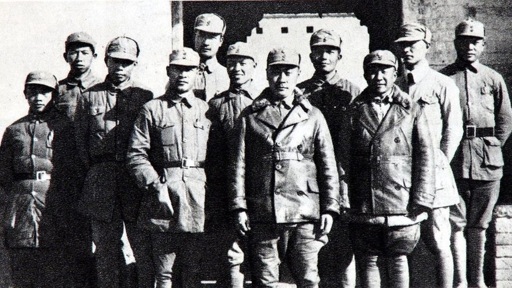Hundreds of academics, political leaders, and journalists from 20 countries have gathered in Shanghai, China for the conference “The Victory of the World Anti-Fascist War and the Postwar International Order: Past and Future”. The conference taking place on November 13 and 14 is held amid the 80th anniversary of the victory over fascism and the end of World War II, an international commemoration that has been marked by sharp debates over narratives.
Over the last year, as Brussels, Moscow, and Beijing organized their respective commemorative activities, major questions were raised by people across the world.
When did the war begin? When did it end?Who won the war?Where were the major fronts of battle?What nations suffered the greatest human losses?What was the participation of African and South Asian nations in the war?What role did the western allied powers play in the rise of fascism?Why did the United States really use the atomic bomb?Why and how has the United States been able to rewrite history and posit itself as the sole savior of humanity?How does the obfuscation of the truth of the World War Against Fascism impact geopolitical developments and the people of the world today?
The conference underway in Shanghai, co-organized by the Global South Academic Forum, the East China Normal University, the Tricontinental: Institute for Social Research, and the University of Johannesburg, seeks to address these questions.

Participants in the conference “The Victory of the World Anti-Fascist War and the Postwar International Order: Past and Future”. Photo: GSAF
Restoring history to understand the present
Beyond debunking the propaganda of Hollywood that has force-fed the world the notion that Nazi Germany was defeated at the Battle of Normandy thanks to a couple of “young farm boys from Iowa”, as Tricontinental director Vijay Prashad jokingly said in the opening session, the discussion seeks to dig deeper. Reflecting on the current war-drive and encirclement of China by the United States, as well as the mass atrocities committed by the United States and its allies with complete impunity, such as the Israeli genocide in Gaza, conference speakers have argued that the post-war maneuvers by the United States were fundamental in shaping the current world order and establishing the US as a hegemonic military power exempt from accountability for its crimes.
One of the major contributions of the conference to this global debate is the launch of a study by the Tricontinental: Institute for Social Research titled “The 80th Anniversary of the Victory in the World Anti-Fascist War: Understanding Who Saved Humanity: A Restoration History”.
The study challenges the death tolls of the war from official western institutions and, considering the price of colonial extraction to fuel the war, it contends that:
In China, 23.6 million deaths were documented from 1937 to 1945 alone.In the USSR, 27 million deaths were documented, 13.8% of the Soviet population in 1940In Africa, between 1.6 and 2 million Africans died – from fascist invasion, forced labor, combat service, and systematic starvation, yet these deaths were never reportedIn the Asian colonies of Bengal, Dutch East Indies, French Indochina, Burma, Malaya and Singapore, Philippines, and Portuguese Timor, 11.2 million died
The 45,000 word, meticulously-researched text opens with a strong declaration: “As we commemorate the 80th anniversary of the victory in the World Anti-Fascist War (WAFW), the Western powers spin their familiar tale: US industrial might and British resolve saved the world from fascism. This is a lie… Fascism was defeated not by Anglo-American capital but by socialist leadership and mass heroism – a brilliant strategy from Moscow and Yan’an, unbreakable resilience from workers and peasants who refused to surrender, and a sacrifice that saved humanity from slavery.”
The comments in the conference’s opening session mirrored this sentiment.
Zhang Meifang, director of the China Institute for Innovation and Development Strategy, declared that it is time for the Global South to “look back at history, review the present and plan for the future.”
Cuban Ambassador to China Alberto Blanco Silva told participants that in restoring the truth about the war, the world must remember China and “the invincible strength of a people determined to defend their homeland.”
Indian historian and director of the Tricontinental: Institute for Social Research, Vijay Prashad, argued in his presentation that the devastation of Japan with the atomic bomb in August 1945, “was not about military strategy. It was entirely a demonstration of US power, a message to the world about the new weapon that the US had developed and a warning to the communists in Asia that this weapon could be used against them. The millions of Asian workers and peasants that died to defeat fascism – including my family members in Burma – were erased by the mushroom cloud. It began to take precedence in popular memory. The bomb and not the people who fought for each inch of land across southeast Asia became the hero.”
Other sessions in the conference will reflect on the Eastern front as the main battlefield in the war, the postwar international order, the Non-Aligned Movement, digital sovereignty, and media and communications.
The post Who was responsible for the defeat of fascism in World War II? appeared first on Peoples Dispatch.
From Peoples Dispatch via this RSS feed


